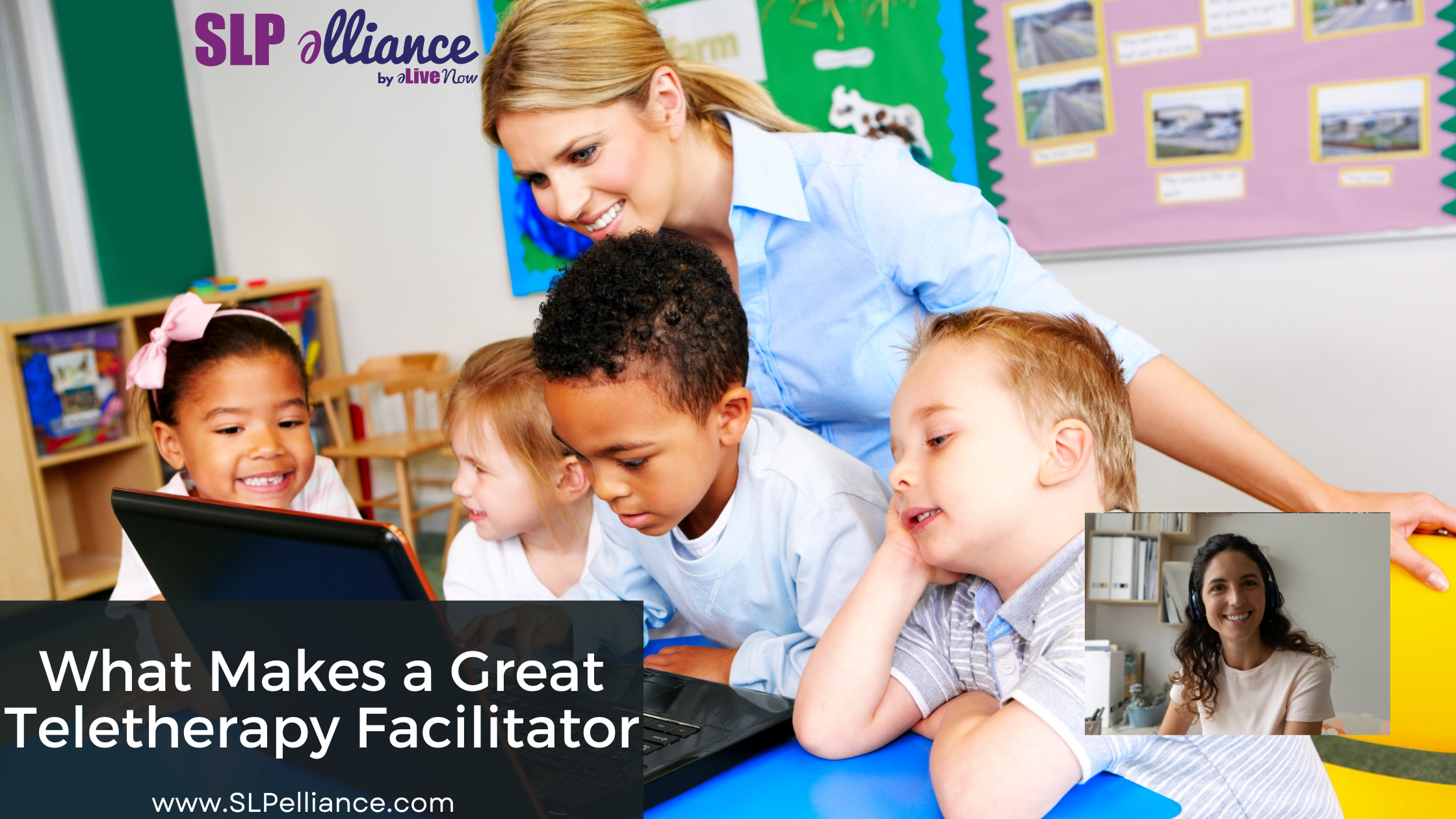For the last three years, I’ve been incredibly lucky to work with a top-notch facilitator who logs in from a brick-and-mortar school. Recently, I asked him a few questions to better understand what that role entails and to get some tips he’d like to share. Here’s how that went…
Any tips you’d like to share with those looking to hire a virtual facilitator?
“Best to have a detail-oriented person with computer skills, word processing, Google Calendar, how to create attendance schedules using Google spreadsheets, for the school as well as to keep track of minutes mandated.”
Any advice you’d like to give to those considering becoming a facilitator?
“Be timely with all interactions with teachers impacted, students, Elive SLP, and immediate supervisor. This is truly a time-sensitive assignment, as SLPs need to know ahead of time which students will be seen for planning purposes. I plan and complete all tasks daily and for sure at the close of each week. You can not procrastinate as too many people are impacted (students, teachers, SLP, and administrators).”
What have been the most important takeaways you’ve learned in this role?
“Keep the students informed of next sessions, sending emails on the day of service to teacher/student is helpful, but MUST be followed up with a gentle phone call to remind the teachers to send students to their session!”
In addition to providing helpful verbal feedback, Joe created a document (which I will paraphrase below) that explicitly details the tasks he is responsible for. It may come as a surprise to many of you who think all it takes is someone to log you in and help with any technical issues; however, an efficient facilitator role can be described in the following way:
Job Description for Speech Facilitator
- Interact with all teachers of students receiving speech services to ensure attendance for their virtual speech session(s). Sending emails to teachers and students on the day services are rendered has proven to be very useful, with some follow-ups during the virtual speech days to boost attendance. Making calls to the classroom to remind both teachers and students to get a session started on time has proved to be very successful.
- Have good computer skills with specifically Microsoft applications, word processing, Excel spreadsheets, and Google document formats.
- Be able to work independently with minimal supervision to maintain and capture weekly/monthly/annual virtual speech minutes as conducted through a virtual contracted service and/or with the local SLP by keeping and sharing an attendance log in a Google document that you have created. (shared with local SLP, local Attendance Office, and Virtual SLPs)
- Be mindful that sensitive information referencing individual students receiving speech-language services by an SLP shall only be shared with your immediate supervisors and those SLPs conducting the virtual speech services.
- To provide a safe and comfortable atmosphere for students who qualify for speech services to come to participate either individually or in groups as determined by the SLPs.
- To become very familiar with the type of computer supplied to the students, the nuances of preferred WiFi settings used by the district, and how to resolve computer functioning when there are concerns about loss of audio, loss of camera function, malfunctioning headsets, echoing in the transmission or other related reception issues during the virtual Zoom session. The intent is to be able to resolve transmission issues to optimize student virtual services quickly.
- Coordinate with contracted SLPs to set up a Google shared calendar for testing and evaluation sessions as deemed appropriate by individual education plan (IEP). To monitor these sessions for continuous student participation and to assist with any difficulties in transmission during the evaluation process.
- To review all calendar invitations and learn how to add students and other appropriate persons who need to participate in the virtual session to the Google calendar invitations.
Lastly- I’d like to give a big thank you to Joe Comella for taking the time to answer my questions and provide more than sufficient feedback in the area of facilitating teletherapy services.
For a Facilitator Checklist:https://www.asha.org/siteassets/uploadedFiles/ASHA-Facilitator-Checklist-for-Telepractice.pdf

